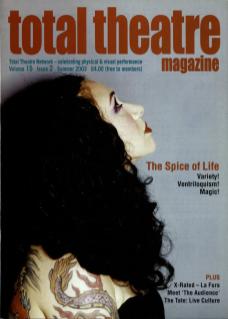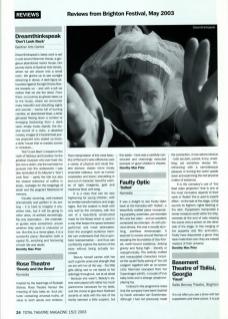Inspired by the teachings of Rudolph Steiner, Rose Theatre honour the meaning of fairy tales as 'soul pictures' containing universal truths, of value to both adults and children.
Their interpretation of this most beautiful of Perrault's tales effectively uses a variety of physical and visual theatre devices: classic mime (lovely ensemble tableaux, such as human candelabra and trees); storytelling in and out of character, beautiful washes of light (magenta, gold and madonna blue) and song.
It is a story that can be very frightening for young children, with its terrible transformations and angry rages. But the subject is dealt with very well by the company, with the use of a beautifully constructed mask for the Beast which is used in a way that keeps the space between performer and mask delineated. Even the youngest audience member can understand that this is symbolic representation – and thus can confidently explore the terrors of the story without being actually terrorised.
Beauty herself carries with her such a gentle poise and strength that we are with her all the way – the little girls sitting next to me stared at her adoringly throughout, not at all afraid – because she wasn't. Beauty's sisters were played with rather too much pantomime caricature for my taste, and the choice to give them Northern accents at odds with the rest of the family seemed a little suspect, but this aside – here was a carefully constructed and charmingly executed example of good children's theatre.

